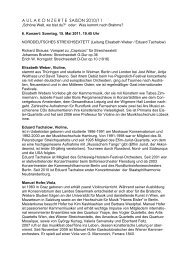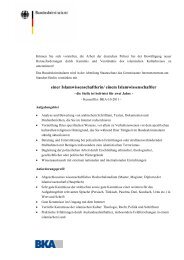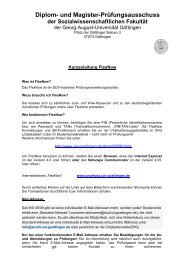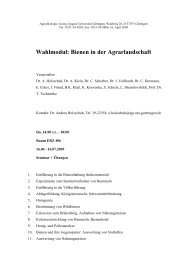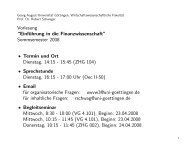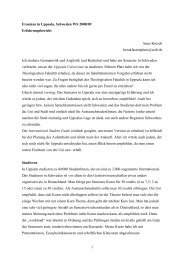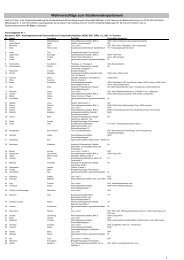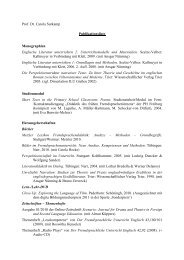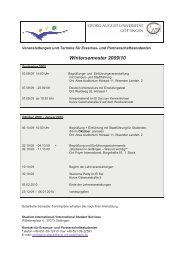The OMC inclusion and national social NGOs: From enthusiasm to ...
The OMC inclusion and national social NGOs: From enthusiasm to ...
The OMC inclusion and national social NGOs: From enthusiasm to ...
You also want an ePaper? Increase the reach of your titles
YUMPU automatically turns print PDFs into web optimized ePapers that Google loves.
More generally, it is not reasonable <strong>to</strong> expect far-reaching results of a mechanism in thehighly sensitive area of poverty <strong>and</strong> <strong>social</strong> exclusion which is not legally binding, whichremains rather vague about its goal(s), which does not foresee a m<strong>and</strong>ate for independentevaluation as well as for the dissemination of information, etc. More particularly, far-reachingresults cannot be expected of the <strong>OMC</strong> <strong>inclusion</strong> in a situation where other, macro-economic,financial <strong>and</strong> employment-focused processes have more binding instruments at their disposal<strong>and</strong> therefore foster processes of “negative” integration while rendering steps of “positive”integration ever more difficult (Scharpf 1996). For these <strong>and</strong> the above mentioned reasons,<strong>social</strong> <strong>NGOs</strong> should a) not focus almost exclusively on the Commission in their lobbyingactivities; b) should do all they can in order <strong>to</strong> overcome the structural limitations forincreased cooperation at EU-level <strong>and</strong> c) must make greater efforts in order <strong>to</strong> mobilise theirown constituencies so as <strong>to</strong> form more powerful pressure groups.6. ReferencesBAGFW / NAK, 2004, Stellungnahme zum Entwurf der Aktualisierung 2004 des NationalesAktionsplans Soziale Ausgrenzung 2003-2005.Br<strong>and</strong>sen, T. et al, 2005, <strong>The</strong> National Action Plan on Social Inclusion, Third Sec<strong>to</strong>r EuropeanPolicy Working Papers, nr. 14., http://www.lse.ac.uk/collections/TSEP/publicdocfind.htm.Büchs, M., 2004, Asymmetries of policy learning? <strong>The</strong> European Employment Strategy <strong>and</strong> its role inLabour market policy reform in Germany <strong>and</strong> the UK, Paper prepared for the ESPAnetconference 'European Social Policy', 9-11 September 2004, Oxford,http://www.apsoc.ox.ac.uk/Espanet/espanetconference/streams/s11.htmBüchs, M. <strong>and</strong> D. Friedrich, 2005, Surface Integration - the National Action Plans forEmployment <strong>and</strong> <strong>social</strong> <strong>inclusion</strong> in Germany, in: Zeitlin, Jonathan, Pochet, Philippe<strong>and</strong> Lars Magnusson (eds.) <strong>The</strong> Open Method of Coordination in Action: <strong>The</strong>European Employment <strong>and</strong> Social Inclusion Strategies (Brussels: P.I.E.-Peter Lang).Camarasa Casals, M., 2005, “<strong>The</strong> participation of European Networks in the Open Methodof Co-ordination in Social Inclusion”, Paper presented at the First European conference ofEMES <strong>and</strong> ISTR: Concepts of the Third Sec<strong>to</strong>r, <strong>The</strong> European Debate Civil Society, VoluntaryOrganizations, Social <strong>and</strong> Solidarity-Based Economy, Paris , 27 <strong>to</strong> 29 April 2005.De la Porte, Caroline, <strong>The</strong> emergence of the Open Method of Co-ordination in <strong>social</strong> <strong>inclusion</strong>, Paperprepared for the annual ESPANET conference, Fribourg, Switzerl<strong>and</strong>, 22 – 24 September2005 .EAPN-France, 2003, Position d’EAPN France sur le plan <strong>national</strong> d’action pour l’<strong>inclusion</strong> (PNAI)2003-2005, July 2003.



